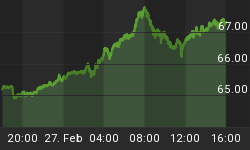The world’s second-largest producer of crude oil and natural gas, Russia, has been said by many energy industry analysts to be too dependent on energy revenues. Indeed, the country gets as much as 40 percent of its federal revenues from oil and gas exports. And it's no secret that Russia isn't exactly famous for renewable energy. Does Russia have a future in a renewable energy world?
Forbes energy writer Ariel Cohen addressed this question in a recent article, adopting the optimistic view of renewables, noting “We have now entered the era of the renewable energy resource, whereby zero-emission electricity is generated via near unlimited inputs (solar radiation, wind, tides, hydrogen, and eventually, deuterium). Cutting-edge, smart electric grids, utility-scale storage, and electric self-driving vehicles – powered by everything from lithium-ion batteries to hydrogen fuel cells – are critical elements of this historic energy transition.”
Cohen accurately argued that all these trends would eliminate a large portion of global oil and gas demand and therefore affect Russia’s fossil fuel revenues adversely. That would certainly be the case had all the trends listed by Cohen reached their heyday. This heyday, however, is still in the future.
According to the International Energy Agency, demand for natural gas will continue to rise at least for the next five years. Chances are, of course, it will continue to rise for much longer than five years as the world switches to the cleaner energy source. Yet, according to Cohen, even China will not be forever thirsty for gas: “As China is joining the developed countries and trying to curb emissions, it will limit imports of Russian hydrocarbons.”
This is another fair argument but it is incomplete: if China is joining “the developed countries” and cutting emissions, it will be reducing not just Russian but all hydrocarbon imports. That would have reverberations not just for Russia but for other large oil and gas exporters, including the U.S., which has staked a major claim on the LNG market of the future.
While there is no question that energy exports in the US account for a lot less of federal revenues than Russia's do, a lot is being invested in the U.S. LNG industry to ensure its long-term survival and thriving. This basically means that if the industry is making long-term plans then it sees sustainable demand for at least one fossil fuel: gas. Related: Beijing’s Plan To Disrupt Rare-Earth Exports
The problem with long-term plans, however, regardless of who makes them, is that we don’t have certainty as to how things will work out. Right now there is a lot of talk about renewables, even more talk about how the costs of renewable energy are falling, and also some talk on how much the complete shift to a zero-emissions world will cost (US$4.5 trillion for the U.S. alone). What renewable optimists often neglect to mention is that we are not there yet and we might not get there for another century or even more.
A century is a long time that will allow oil and gas producers—not just Russia but also a lot more heavily oil-dependent Middle Eastern countries—to find replacements for their fossil fuels as contributors to budget revenues. After all, all of these countries are, besides major oil and gas sellers, also major buyers of other goods and services with their petrodollars. Erasing these petrodollars from the board will not do the global economy any good, so chances are they will keep coming for well over a couple of decades.
By Irina Slav for Oilprice.com
More Top Reads From Safehaven.com:
















